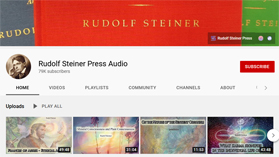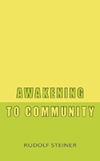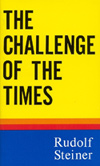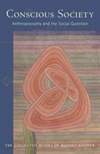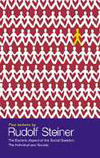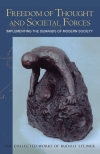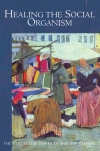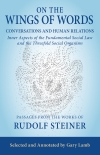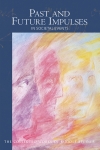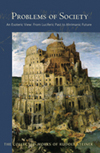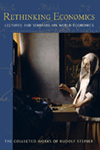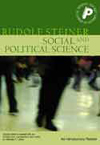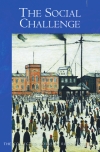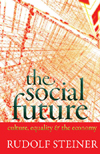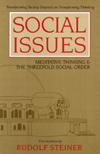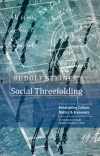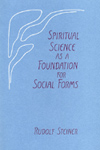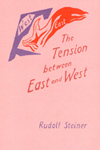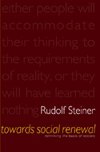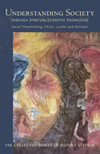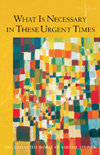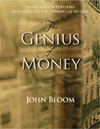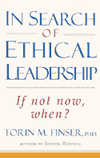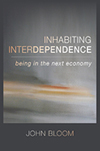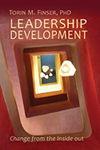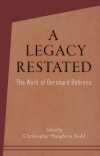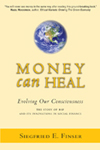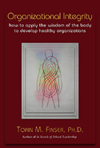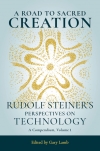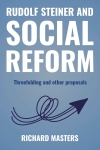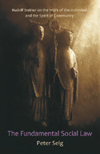
- RUDOLF STEINER
- OTHER AUTHORS
-
SOCIAL QUESTIONS AND ECONOMICSRUDOLF STEINER
"We are firmly in our understanding of things of the spirit only when we do not rest content with abstract spiritual concepts and a capacity to express them theoretically, but instead grow into a sure belief that higher beings are present with us in a community of spirit when we engage in spiritual study. No external measures can bring about anthroposophical community-building. You have to call it forth from the profoundest depths of human consciousness." —Rudolf Steiner
In these lectures, given just days after the end of World War I, Steiner describes the new developments in mechanics, politics, and economy, as well as new capacities and methods in the West and the East. He reveals their fruitful potentials, but also the dangers of their abuse. He discusses social and antisocial instincts, specters of the Old Testament in the nationalism of the present, and the innate capacities of various nations.
Anthroposophy and the Social Question
Delivered in the context of post-war cultural and social chaos, these lectures form part of Rudolf Steiner’s energetic efforts to cultivate social understanding and renew culture through his innovative ideas based on ‘threefolding’. Steiner develops a subtle and discerning perception of how social dynamics could change and heal if they were founded on real insight into our threefold nature as individuals, social beings and economic participants in the world. He doesn’t offer a programmatic agenda for change, but a real foundation from which change can organically grow.
THE ESOTERIC ASPECT OF THE SOCIAL QUESTION
The Individual and Society
Although recent years have seen major advances in science and technology, the social aspect of life still presents major problems for western societies. The general increase in destructive, antisocial behaviour over past decades has raised the profile of social issues, yet effective ideas to tackle the difficulties are often nowhere to be found.
FREEDOM OF THOUGHT AND SOCIETAL FORCES
Implementing the Demands of Modern Society
Freedom of Thought and Societal Forces provides a broad overview of Steiner’s fresh thinking on "social threefolding". He acknowledged that the demand for social change, derived above all from the working class, whom industrialization had forced into a kind of indentured life dominated by economics. From Steiner's perspective, the underlying issue was not only economic, however, but also spiritual or cultural. Culture and the cultured classes had become estranged from "real life". Society needed a "free" culture that would include all classes. It also needed to shift labour into the legal sphere of rights, the only place where workers could find real freedom in society. Capital, too, needed to be liberated from egotism and allowed, like goods, simply to circulate. Above all, Steiner understood that social realities could not be separated from the spiritual realities of human existence.
Speaking just months after the end of the First World War, Rudolf Steiner urges his audience to awaken to the practical relevance of spiritual knowledge. Serious engagement with contemporary spiritual-scientific concepts can awaken healthy forces of the will, which in turn facilitate constructive action in the outer world. Conversely, ideas that are remnants of a previous age – echoed in empty phrases and dogmas – only hinder our ability to think with the consciousness demanded by the times, destroying the potential for true social initiative.
Conversations and Human Relations:
Inner Aspects of the Fundamental Social Law and The Threefold Social Organism
Selected and Annotated by Gary Lamb
“We live in [a time when] human beings must become independent. But on what does this depend? It depends on people’s ability...to become self-assertive, to not allow themselves to be put to sleep [in their thinking]. It is the antisocial forces that require development in this time, for consciousness to be present. It would not be possible for humanity in the present to accomplish its task if...these antisocial forces did not become ever more powerful; they are indeed the pillars on which personal independence rests. At present humanity has no idea how much more powerful antisocial impulses must become.” — Rudolf Steiner (Dec. 12, 1918)
in Societal Events
Barely four months after the end of the First World War, with Europe in chaos and exhausted from years of conflict, Rudolf Steiner offered these lectures of hope and renewal. Despite continuing social troubles around the world, he knew that human beings had an opportunity to organize society in a new way. Steiner responded to this prospect by giving suggestions for creating innovative social structures that are in harmony with people’s inner needs.
An Esoteric View, From Luciferic Past to Ahrimanic Future
‘Whatever turbulent outward events occur in the world, whatever form is taken by things seeking to work their way out of the depths of human evolution, we only really hearken to the true, underlying nature of these events ... if we observe the world from a spiritual perspective.’ – Rudolf Steiner
Lectures and Seminars on World Economics
Rudolf Steiner gave this complex sequence of dense, subtle, multileveled lectures and seminars to students of economics in Dornach, Switzerland, during the summer of 1922. The course reflects a lifetime of thinking on the subject and marks the conclusion of his intense five-year period of activism in the service of social, political, and economic issues.
An Introductory Reader
Psychological cognition; The social question; The social question and theosophy; Memoranda of 1917; The metamorphosis of intelligence; Culture, law and economy; Central Europe between East and West.
‘What underlies the entire thrust and direction of these lectures is that we are not dealing with some arbitrary programme or scheme; we are not dealing with the intentions or opinions of this or that social class. Rather, it is a matter of tapping into what prompts the deepest, most realistic impetus for the coming decades in human evolution…’
Culture, Equality, and the Economy
In 1919, shortly after World War I, the structure of society and the economy, both in Germany and globally, became a primary concern of Rudolf Steiner. In addition to writing The Threefold Social Order, in which he presented his ideas for social renewal, Steiner also gave lecture courses that year, including The Social Question as a Question of Consciousness (CW 189); Impulses of the Past and Future in Social Events (CW 190); Spiritual-Scientific Treatment of Social and Pedagogical Questions (CW 192); The Esoteric Aspect of the Social Question (CW 193); The Social Question (CW 328); as well as others and the lectures in this book, The Social Future.
Meditative Thinking and the Threefold Social Order
Paperback
In these exciting lectures, Rudolf Steiner shows that today's political, economic, and social problems are symptoms of our faulty thinking. His convincing analysis of economic crises, unemployment, and political uprisings unmasks such problems as signs of our desperate need for new thinking. In a very accessible way, Steiner describes how spiritual science and the kind of thinking it fosters can lead to a renewal of society and to true freedom for individuals.
Rebalancing Culture, Politics & Economics
An Introductory Reader
In the aftermath of the devastating First World War, Rudolf Steiner gained a reputation as a leading social thinker. One mainstream reviewer of his book Towards Social Renewal referred to it as ‘… perhaps the most widely read of all books on politics appearing since the war’. Steiner’s proposals for the reconstruction of Europe and the rebuilding of society’s crumbling social structure were thus publicly discussed as a serious alternative to both Communism and Capitalism.
Rethinking the Basis of Society
Although this book was first published in 1919, it remains highly relevant to social problems encountered today. Uniquely, Steiner's social thinking is not based on intellectual theory, but on a profound perception of the archetypal spiritual nature of social life. As he suggests in this classic work, society has three distinct realms - the economic, the political (individual human rights), and the cultural (spiritual). While social life as a whole is a unity, the autonomy of these three sectors should be respected if our increasing social problems are to be resolved.
Through Spiritual-Scientific Knowledge
Social Threefolding, Christ, Lucifer and Ahriman
In the uncertainty following the end of the First World War, Rudolf Steiner perceived a unique opportunity to establish a healthy social and political constitution. He began lecturing throughout post-war Germany, often to large audiences, about his social ideas. Here, speaking to a more intimate grouping at the Goetheanum in Dornach, Switzerland, Steiner seeks to deepen the themes of social threefolding, showing specifically how new social thinking is integral to anthroposophy.
WHAT IS NECESSARY IN THESE URGENT TIMES
In early 1920, political, economic, social, and spiritual chaos was everywhere. The old world had fallen apart and would need to be rebuilt. Anthroposophy, too, had to be remade. Recognizing this, Rudolf Steiner worked tirelessly for the 'threefold social order', establishing the first Waldorf school, helping to create businesses, and addressing the talented, educated, and idealistic young people who were beginning to turn toward anthroposophy for answers.
-
SOCIAL QUESTIONS AND ECONOMICSOTHER AUTHORS
Essays and Interviews Reimagining the Financial World
John Bloom
"To understand money in the deepest sense is to journey inwardly to grapple with the "money self," to become more conscious economic participants in financial transactions with the world, and last but not least, to work to meet the material needs of others so that our economic needs are met through others" work. This formulation describes a three-fold virtuous cycle, one that represents a radical transformation from our current world circumstance, which tends to revolve around and end with self-interest, unsupportable accumulation, and fear born of never-enough." - John Bloom
Creating a Home for Body, Soul and Spirit
Veronika van Duin
In recent years, social and economic pressures have combined to affect the traditional role of the homemaker. With emphasis being placed on the world of work as opposed to the life of home, many people now struggle to fulfil several functions simultaneously. This increasingly busy and hectic climate has led to an apparent downgrading of the work of the homemaker.
IN SEARCH OF ETHICAL LEADERSHIP
If not now, when?
Torin M. Finser
The author considers the current crisis in ethical leadership and brings his unique approach to the problems we face. He takes us on a journey of discovery by asking hard questions about the breakdown in ethics and leadership as evidenced by the shooting at Columbine, the financial debacle at Enron and other companies, as well as the recent war in Iraq.
Being in the Next Economy
John Bloom
In this insightful book, John Bloom, author of The Genius of Money, explores approaches toward transforming the conventional habits of mind and practice that have led to today’s imbalance in our economic life and in society as a whole. Acknowledging that money has permeated almost every aspect of daily life—including our relationships to nature and to one another—Bloom asks:
How and why did we arrive at our current forms of social practice, including organizational life and governance?Change from the Inside Out
Torin M. Finser
“To achieve great things two things are needed; a plan and not quite enough time.” —Leonard Bernstein
The Work of Bernhard Behrens: Four Essays with Current-day Reviews
Bernhard Behrens
Edited by Christopher Houghton Budd
“Until true individualism—meaning not the continuation but the overcoming of egoism—has the strength to win through against and transform the artificially galvanized group spirits [from the past], the task of culture cannot be fulfilled. Group interests will continue to act as mutual enemies.” — Bernhard Behrens
Photography by Skip Hunt
Shannon Honeybloom
"More than merely a dwelling, the definition of home extends beyond the meaning of a house and contains an additional poetic meaning. There's the saying, 'Home is where the heart is'. Creating a home for our families can be both a challenge and a pleasure. Creating a home is a process of imbuing our space with soul and spirit, surrounding our family with love, care, comfort." - Shannon Honeybloom
Evolving Our Consciousness
Siegfried Finser
"Siegfried Finser has written a book that will turn the world around.... This book is seminal in its clarity, impact, intelligence, and integrity. Finser writes what he has lived, which makes the book all the more potent and totally trustworthy. The clear and groundbreaking ideas of the great Rudolf Steiner come alive through this important book. Read it and live it. I give it my highest recommendation." - Lynne Twist, veteran fund-raiser, global activist, author, The Soul of Money: Reclaiming the Wealth of Our Inner Resources
How to Apply the Wisdom of the Body to Develop Healthy Organizations
Torin M. Finser, Ph.D.
Dr Finser argues that we need a new ecology of organizations, and that now is the time for a revolution that creates dynamic, living organizations by the people and for the people. Moreover, he shows us how to achieve this seemingly impossible task by 'organ-izing' organizations. Just as democracy has transformed much of the world, through the genius of the human body we can transform organizations into living systems that serve and protect human interests.
Rudolf Steiner’s Perspectives on Technology
A Compendium, Volume 1
Edited by Gary Lamb
This book is a call to examine the very nature of technology and to develop practices for meeting its many challenges.
RUDOLF STEINER AND SOCIAL REFORM
Threefolding and other proposals
Richard Masters
How might we improve the way we organize society, so that human beings can live in greater peace, dignity and justice?
Rudolf Steiner on the Work of the Individual and the Spirit of Community
Peter Selg
The healthy social life is found When in the mirror of each human being The whole community finds its reflection And when in the community The virtue of each one is living.

